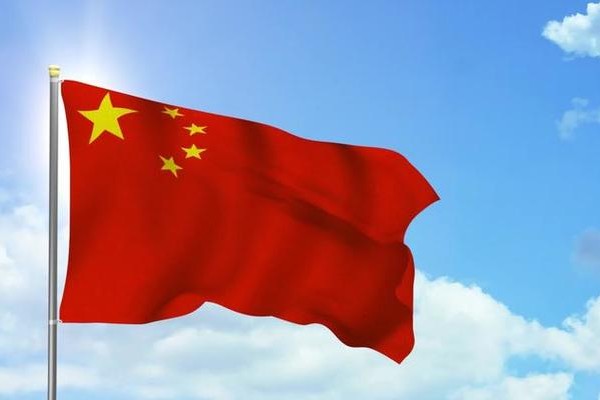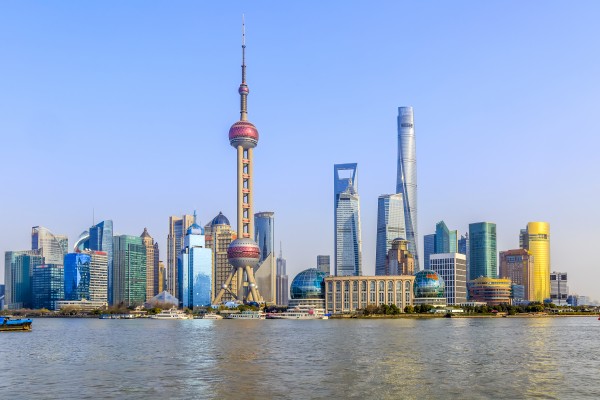China, which has outstanding experience in creating effective regulation of digital platforms, can become an example for the whole world in this area. At the same time, the leadership of the Chinese antimonopoly agency is ready to cooperate with Russian colleagues, including within the framework of BRICS. About how this interaction is built within the framework of the HSE BRICS Competition Law and Policy Centre, as well as about the concept of “ecoantitrust” developed in this Centre, based on elements of Chinese philosophy, in the HSE Daily article.
The head of the State General Administration for Market Regulation (SAMR) of the PRC, Luo Wen, who was appointed to this post in July this year, sent a letter of appeal to the director of the BRICS Competition Law and Policy Centre of the National Research University Higher School of Economics Alexey Ivanov. In the letter, he expressed hope that the Centre as a platform for international cooperation and interaction will play an even more important role, provide intellectual support to the BRICS countries, make a useful contribution to the study of competition law and policy on a global scale, and have a positive impact on the development of global competition rules. Luo Wen notes that the Chinese side hopes to learn more about the research experience and important achievements of the BRICS Competition Law and Policy Centre as part of the National Research University Higher School of Economics.
“Friendship between the two states has no borders, there are no forbidden zones in cooperation,"
the Russian Federation and the People's Republic of China said in a joint statement following a personal meeting between Vladimir Putin and Xi Jinping in Beijing on February 4, 2022. The talks coincided with the opening ceremony of the XXIV Winter Olympic Games, and the heads of state signed a whole package of documents and agreements, including an intergovernmental agreement on cooperation in the field of antimonopoly law enforcement and competition policy. The desire to develop fair competition has united Russia and China for a long time and every year takes an increasingly important place in the politics of both countries. The BRICS Competition Law and Policy Centre, as a supporting expert organization of the competition protection agencies of the association countries, is actively involved in the ongoing processes of transforming antimonopoly regulation, experts of the Centre explain.
In April 2021, Alexey Ivanov, director of the BRICS Competition Law and Policy Centre, gave an interview to the Xinhua news agency, where he stated that China could become an example in the field of antitrust regulation of digital platforms. Alexey Ivanov then noted that through the use of new approaches, China can show the whole world a new model for organizing the digital economy, similar to the special model of accelerated industrialization that is already being implemented. The antimonopoly activity of the PRC authorities will become the source of the formation of a new antimonopoly policy both in the country and in the international context, Alexey Ivanov believes. It is worth noting that the interview was posted on the official website of the Chinese regulator. Alexey Ivanov has repeatedly commented for Xinhua on the approaches of the antimonopoly agency to the regulation of digital platforms, as well as initiatives to abandon the patent protection of vaccines, drawing attention to the BRICS Competition Law and Policy Centre.
For several years now, the Centre has been publishing weekly digests of Chinese antitrust news in Russian and English and has been engaged in understanding and analyzing the regulatory changes taking place in China. Also, experts of the Сentre direct significant efforts to maintain active contacts with the Chinese side and their development.
Thus, in 2019, together with a team from Shanghai Transport University, including Wang Xianlin, a leading antitrust expert in China, and Peking University, the Centre prepared and published a Report on New Approaches to Protecting Competition in the Digital Economy. The report touches on one of the most important issues of our time — public administration of the digital economy — with particular attention to new forms of competitive interaction in the era of digital capitalism.
In 2019, a Chinese delegation led by the Deputy Head of SAMR, who is now also the Commissioner of the National Antimonopoly Bureau, Ms. Gan Lin, visited Moscow to participate in the VI Conference on Competition under the auspices of the BRICS. At the event, the FAS Russia and SAMR signed a Memorandum of Understanding for the period 2020–2021 as part of the implementation of the Intergovernmental Agreement on Cooperation in the Field of Combating Unfair Competition and Antimonopoly Policy dated April 25, 1996, and also discussed and positively assessed the activities of the BRICS Competition Law and Policy Centre.
At the virtual meeting of the heads of BRICS competition authorities on May 27, 2021, Ms. Gan Lin also noted that SAMR maintains close cooperation and interaction with the BRICS Competition Law and Policy Centre. Working with the Centre, according to Gan Lin, contributed to research on topical issues and expanded the area of cooperation between the antimonopoly authorities: “I believe that the BRICS Competition Law and Policy Centre has great potential to help deepen cooperation between our agencies, set a common agenda for the BRICS antimonopoly authorities, as well as organizing ongoing consultations on all topical issues. Once again we express our support for the activities of the Centre and look forward to establishing closer partnerships.”
In November 2021, representatives of the Centre — director Alexey Ivanov and expert Anna Pozdnyakova — were invited to participate online in three of the five sessions of the VII Conference on Competition under the auspices of the BRICS (China, Chengdu), which took place in a hybrid format due to anti-epidemic restrictions. The session "Development of Competition Policy in the Digital Age" was moderated by Huang Yong, a member of the Expert Advisory Board of the State Council Antimonopoly Commission of the People's Republic of China. Among the speakers were representatives of the competition authorities of the BRICS countries, as well as businesses, including Alibaba PR Director Wen Jia and Tencent Vice President Si Xiao. At the session, Alexey Ivanov presented an innovative concept of antimonopoly regulation, taking into account the role of ecosystems in the global economy: the Centre proposes to take into account the similarity of digital and natural ecosystems. The new concept was called "ecoantitrust". A comprehensive approach based on the use of analogies between natural and digital ecosystems is largely inspired by the basic principles of Chinese medicine and the philosophy of the five elements of Wuxing.
Knowledge of the concepts of Chinese traditional philosophical thought "yin - yang - wuxing" and "the unity of man and nature" is included in the criteria developed by the Ministry of Science and Technology and the Publicity Department of the PRC for the level of scientific knowledge of a citizen of the PRC in terms of analyzing and solving issues using systemic methods, say Russian experts. Since ancient times, traditional Chinese culture has been based on the understanding that the world is characterized by universal interconnectedness, objects are in motion, transformation, development and a state of unity of opposites, and therefore it is necessary to be able to cognize and solve issues from the point of view of universal interconnection and development. "Ecoantitrus" also relies on the methods used in traditional Chinese medicine, where the greatest attention is paid to the prevention of diseases.
“It is very important to develop practice and learn to apply such a regulatory methodology that will allow the antimonopoly body to respond when the imbalance has just begun in digital ecosystems, and not to respond to problems that have already arisen, which are often very difficult to eliminate,”
the director of the Centre comments.
The BRICS Competition Law and Policy Centre is developing the concept of "ecoantitrust" jointly with the International Institute for Applied Systems Analysis (IIASA). Expert support is provided by a longtime friend of the Centre, Professor Cui Zhiyuan, who has been teaching at the School of Public Policy and Management of Tsinghua University (Beijing) since 2004. In addition, Jia Kai, Associate Professor of the School of Public Affairs and Administration (SPAA) of the China University of Electronic Sciences and Technology (UESTC), works in the Centre’s team: the expert is engaged in in-depth study of artificial intelligence, algorithms and data management and regularly participates in Alibaba team surveys on the subject current and planned policies in these areas. Jia Kai is involved in the practical application of the ecoantitrust financial flow model to the online taxi markets and helps the Centre to analyze the best practices for implementing algorithms on China's leading taxi platforms DiDi and AMAP.
The research direction of the Centre for the development of the competitiveness of the agro-industrial complex also attracted the attention of the Chinese side: this summer, representatives of the Chinese Academy of Social Sciences approached the Centre with a proposal for a joint scientific project on agricultural cooperation between Russia and China. The project is currently at the approval stage.
How antitrust regulation has evolved in China
In China, the growing role of antitrust is clearly seen in the evolution of the regulatory apparatus. Initially, antitrust enforcement functions were not isolated and were distributed among three separate departments - the Ministry of Commerce (MOFCOM), the State Development and Reform Committee (NDRC) and the State General Administration for Industry and Commerce (SAIC). In 2018, they moved to a single body - the Antimonopoly Bureau within the structure of the General State Administration for Market Regulation (SAMR). In 2021, this SAMR department was upgraded to a vice-ministerial level agency – the National Antimonopoly Bureau.
In recent years, China has achieved unprecedented success in the field of antitrust regulation: along with the United States and the European Union, it is one of the three largest antitrust jurisdictions in the world. On August 1, 2022, a new version of the Antimonopoly Law of the PRC came into force. In the amendments, the authorities took into account the rapid development of the digital economy, increased penalties for anti-competitive practices, introduced new requirements for the consideration of economic concentration transactions, and tightened the ban on the abuse of administrative powers. At the same time, related legislation is also actively developing, especially in the digital sector: Antitrust Guidelines for the Platform Economy, Antitrust Compliance Standards for Internet Platforms, Opinions on Strengthening Algorithm Governance on the Web, Opinions on Promoting the Healthy and Sustainable Development of the Platform Economy, etc. have emerged.
At the end of 2020, at a meeting of the Politburo of the CPC Central Committee, Chinese President Xi Jinping announced the need to intensify the fight against monopolistic practices and prevent the uncontrolled expansion of capital, which marked the beginning of a large-scale antitrust campaign against Chinese digital giants. China has begun retrospectively reviewing M&A transactions in the digital economy and issuing penalties for outstanding applications. It is important to note, say the BRICS Competition Law and Policy Centre, that in regulating digital platforms, China takes a comprehensive approach and introduces new dimensions: it emphasizes the importance of the social role of platforms in society and their social responsibility, which must be put above profit. Platforms should take care of vulnerable groups of the population – minors, the elderly, protect the rights of workers in new business formats, such as couriers on platforms, taxi drivers, participate in projects for shared prosperity and eradicate poverty, donate funds to charity, reduce carbon emissions.
Author: Alexander Gorchakov
Source: HSE Daily




